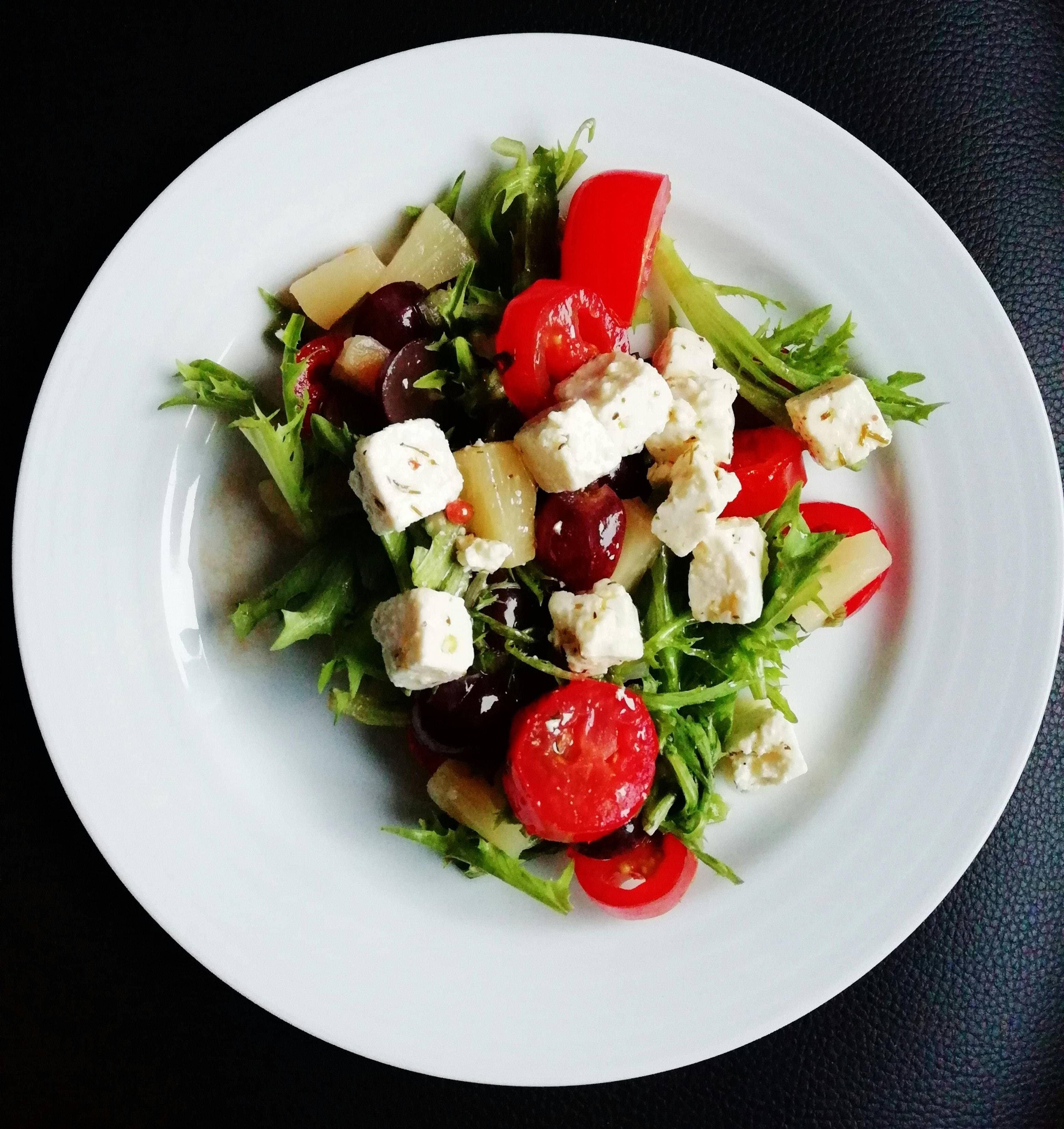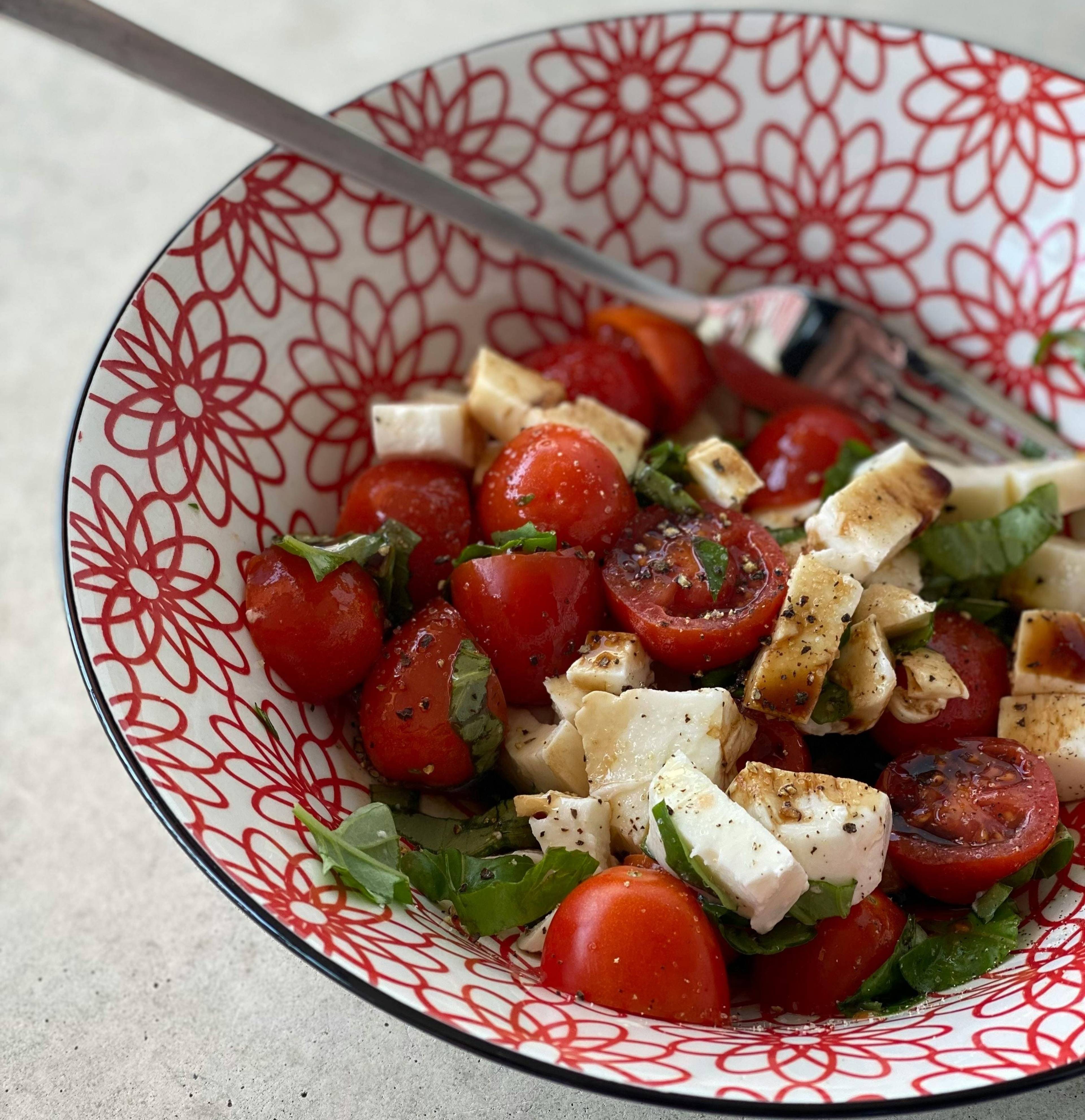What Is a
Mediterranean Diet?
The odds are high that you’ve heard of the Mediterranean Diet before. It’s been around for a while now and has steadily climbed in popularity over the years. But what exactly is a Mediterranean Diet? And more importantly, is it the right fit for you?
If you’re interested in joining the millions of people around the world who follow a Mediterranean Diet, we believe we can help you. But before we talk about that, let’s first talk more about the Mediterranean Diet itself.
Namely, what it is, where it comes from, the key principles, and a few of the benefits.

What Is the Mediterranean Diet?
What Are the Key Components of the Mediterranean Diet?
Alright, let's dive into the heart of the Mediterranean Diet. What makes it unique? What makes it stand out? Here's a glimpse at the key components that make this diet a popular choice for those seeking a healthy lifestyle:
Emphasis on Plant-Based Foods
The Mediterranean diet is truly a celebration of plant-based foods. It's not just about leafy greens and carrot sticks, either. This diet is about making plant-based foods the main event in your meals.
Fresh fruits, veggies, legumes, and whole grains take center stage, offering a variety of flavors and textures that are both satisfying and nutrient-rich. Think: hearty lentils and sweet potatoes simmered in a savory broth or a refreshing salad featuring quinoa, ripe tomatoes, cucumbers, and crisp lettuce drizzled with a tangy vinaigrette.
Imagine a steaming bowl of brown rice, its nutty flavor perfectly complementing a stir-fry of seasonal veggies. Or how about a simple slice of pita bread, toasted to perfection and smothered with creamy, flavorful crushed chickpeas (hummus)?
These are just a few examples of the plant-based possibilities offered by a Mediterranean dietary pattern. If you’re going Mediterranean, you’ll be eating between seven and 10 servings of plant-based foods daily.
The Role of Healthy Fats
Healthy fats are a cornerstone of the Mediterranean diet, and their importance can't be overstated. Unlike other diets that might caution against all fats, the Mediterranean diet understands that healthy fats are essential for our bodies to function properly.
Extra virgin olive oil is one of the primary sources of these good fats in the Mediterranean diet. This oil, made from the first pressing of olives, is rich in monounsaturated fats. These fats are different from the saturated fats you'd find in foods like dairy products or fatty cuts of meat.
Monounsaturated fats have been shown to help manage the balance of "bad" LDL and “good” HDL cholesterol. So, when you’re using extra virgin olive in your cooking or as a dressing for your salads, you're enhancing the flavor of your food and making a heart-healthy choice that keeps your ticker going strong.
Moderate Consumption of Fish and Poultry
Unlike some diets that rely heavily on red meat, the Mediterranean way of eating emphasizes lean proteins, which are an essential part of a healthy diet.
Fish, for instance, is a fantastic source of lean protein. Not only is it low in saturated fat, but certain types of fish, like mackerel and sardines, are also high in omega-3 fatty acids. These healthy fats have been linked to numerous health benefits.
In addition to fish, poultry is also consumed in moderate amounts in the Mediterranean diet. Chicken and turkey are leaner choices than red meat, and they provide a good amount of protein, which can help keep you full and satisfied.
Remember, the key here is moderation. The Mediterranean diet isn't about completely eliminating certain foods (like red meat) but rather about making leaner proteins like fish and poultry the mainstay of your protein intake.
Limited Intake of Processed Foods and Sweets
One of the key principles of the Mediterranean diet is limiting the intake of processed foods and sweets. This diet emphasizes fresh, whole foods and encourages you to steer clear of foods that are high in refined carbohydrates or added sugars or have been heavily processed.
Processed foods often contain high levels of sodium, unhealthy fats, and added sugars. They can also lack the nutrients found in whole foods.
Similarly, while sweets can be enjoyable as an occasional treat, they are typically high in added sugars and can contribute to serious health issues like obesity, type 2 diabetes, and heart disease when consumed in excess.
The Mediterranean diet encourages you to enjoy sweets and processed foods in moderation, focusing more on fresh fruits for dessert and choosing whole foods over processed ones whenever possible.
For example, you might enjoy a ripe peach or a handful of grapes instead of reaching for a candy bar when you want something sweet. Instead of a bag of chips for a snack, you might choose a handful of roasted almonds or a slice of whole-grain bread with a bit of cheese.
Making these changes to your eating patterns can make a world of difference in your overall health and wellness.
The Importance of Regular Physical Activity
In addition to its focus on balanced eating, the Mediterranean lifestyle also emphasizes the importance of regular physical activity. Staying active is a key component of maintaining overall health, and it pairs perfectly with the nutritious eating habits promoted in the Mediterranean diet.
Regular physical activity, whether walking, running, swimming, cycling, or even gardening, provides a wide spectrum of health benefits. It can help maintain a healthy weight, strengthen your heart and lungs, improve your mood, and lower your risk of developing several chronic diseases.
The Mediterranean lifestyle doesn't require you to spend hours at the gym or run marathons (unless you want to, of course). Instead, it encourages you to find activities you enjoy and can incorporate into your daily life. That could be a brisk walk in the park, a short yoga session in the morning, or a bike ride with your family.

What Are the Benefits of the Mediterranean Diet?
